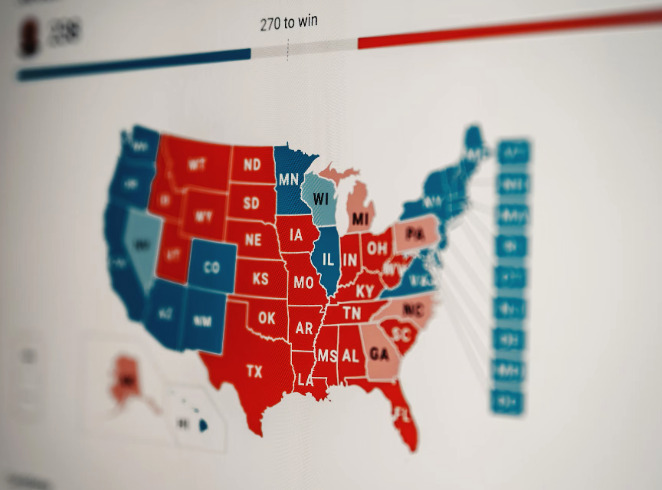Survey: Democrats, Republicans Share Core Values but Still Distrust Each Other
A survey conducted jointly by the University of Chicago's NORC and the nonprofit group Starts With Us (SWU) has found that 90% of both Democrats and Republicans share similar views on values such as fairness, compassion, and personal responsibility.

Facts
- A survey conducted jointly by the University of Chicago's NORC and the nonprofit group Starts With Us (SWU) has found that 90% of both Democrats and Republicans share similar views on values such as fairness, compassion, and personal responsibility, but only a third of either group believed it true of the other side.1
- The results show 91% of Republicans believe it's very or extremely important that citizens learn from the past to improve the country, but just a third of Democrats thought their GOP counterparts did. Likewise, 90% of Democrats believed government accountability was important, but only 31% of the GOP thought they did.2
- Regarding each of the six values included in the survey — which included fair enforcement of the law and representative government — approximately 90% of both parties agreed strongly with each statement while distrusting the other side.1
- Reasons cited for such misunderstandings include the decline and fragmentation of legitimate news sources, politicians stoking distrust, and social media platforms spreading misinformation while separating users into echo chambers.3
- Harvard Prof. Julia Minson has called this "affective polarization," where disagreements are based on animosity and a lack of trust instead of debates over values or policy. CEO of Common Ground USA Nealin Parker stated "you get worried" when "polarization turns into dehumanization."3
- The nationwide survey interviewed 1,003 adults between May 11 and 13, used NORC's probability-based AmeriSpeak Panel to make it representative of the US population, and had a margin sampling error of plus or minus 4.3%.2
Sources: 1Associated Press, 2ABC News, and 3Washington Post.
Narratives
- Pro-establishment narrative, as provided by New Yorker. Even though opposing US parties have more in common than they'd like to believe, hyper partisanship today has become about much more than policy. Party allegiance is part of a mega-identity, comprising race, faith, and social and mainstream media habits. It is no wonder that, with the shift toward compiling multiple key aspects of an individual's social and cultural existence, and attaching it to one side of the political divide, debate is more difficult than ever. The US must work to find broader commonalities, and look to share longer term superordinate goals to help depolarize America.
- Establishment-critical narrative, as provided by Washington Post. The movement away from bipartisanship is not only the result of the changing political landscape. The flawed two-party system is restricting American voters from registering their dissatisfaction and disenchantment with the major parties, meaning their participation in elections is motivated by contempt for opponents rather than support for anyone on the ballot. The oversimplified choice offered at the polls is not even reflective of the political diversity within the two parties, let alone outside of them. Lawmakers must reform this system, for the sake of discourse and the future of American democracy.






